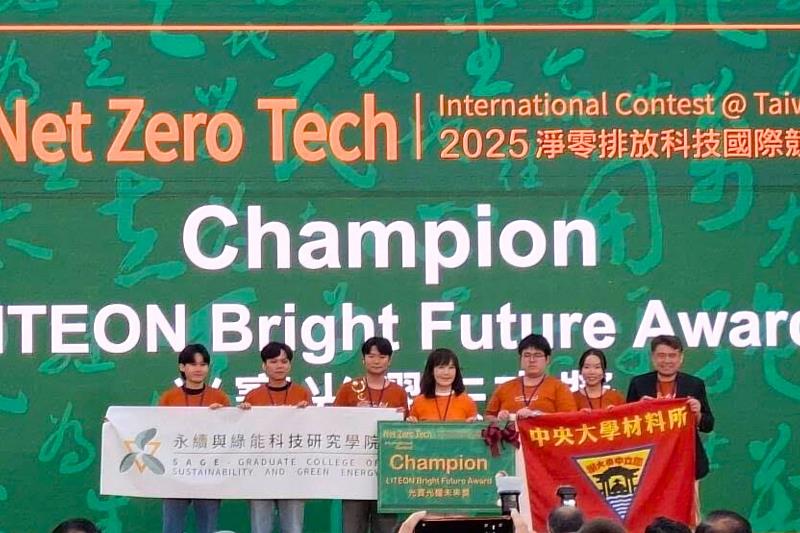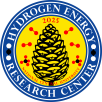Develops High-Entropy Catalysts to Advance Seawater Hydrogen Production
A research team from the Institute of Materials Science and Engineering and the College of Sustainability and Green Energy at National Central University (NCU), led by Professor Wei-Hsuan Hung, Director of the Carbon Reduction Program, has won first place in the international division of the “2025 Net Zero Tech International Competition”, jointly organized by the TECO Technology Foundation and National Taiwan University.
Their award-winning project, titled “Development of an Integrated System for Catalysts and Electrolysis Equipment,” focuses on the development and application of high-entropy catalyst materials for hydrogen production from seawater electrolysis. Through innovative materials design, the team successfully reduced the corrosiveness of seawater ions and enhanced catalytic efficiency and stability—marking a significant breakthrough toward the commercialization of seawater hydrogen production technology.
The team has long specialized in high-entropy materials and hydrogen energy research. Using a pulsed laser irradiation scanning on mixed salt solutions (PLMS) process and oxyhydrogen flame sintering, they achieved high-throughput production of high-entropy catalysts. The unique rapid heating and cooling characteristics of the process enable the fabrication of high-quality catalyst materials and large-area coatings suitable for industrial applications.
To further meet commercial needs, the team also developed high-entropy carbonate (HECC) catalyst materials using a solvothermal synthesis method. In addition to technological innovation, the team has partnered with Tripod Nano Technology Co., Ltd. to establish a green hydrogen demonstration site at NCU, providing a platform for R&D collaboration and academia–industry exchange. They are also working with several publicly listed companies to accelerate technology transfer and commercialization.
The competition, co-organized by the TECO Technology Foundation and National Taiwan University, was supported by the Ministry of Education, the Ministry of Environment, and the Ministry of Economic Affairs. It aims to promote net-zero carbon technology development, talent cultivation, and international collaboration. This year’s event attracted 1,150 participants from 16 countries, with a total prize pool of NT$6.5 million. Professor Hung’s team stood out amid fierce competition, earning the International Championship, a testament to NCU’s strong research capabilities and international influence in materials science, hydrogen applications, and net-zero technology.
Professor Hung emphasized that the team will continue advancing research and talent cultivation in net-zero carbon technologies, deepening academia–industry collaboration, and injecting greater innovation into green energy development and sustainable society. The team will further pursue in-depth studies on seawater electrolysis for hydrogen production, contributing to global efforts toward net-zero emissions.

Professor Wei-Hsuan Hung and his team have long been dedicated to hydrogen energy research. They will continue advancing seawater electrolysis hydrogen technology, moving forward on the path toward net-zero emissions.
(Source: NCU News, Original Article )
